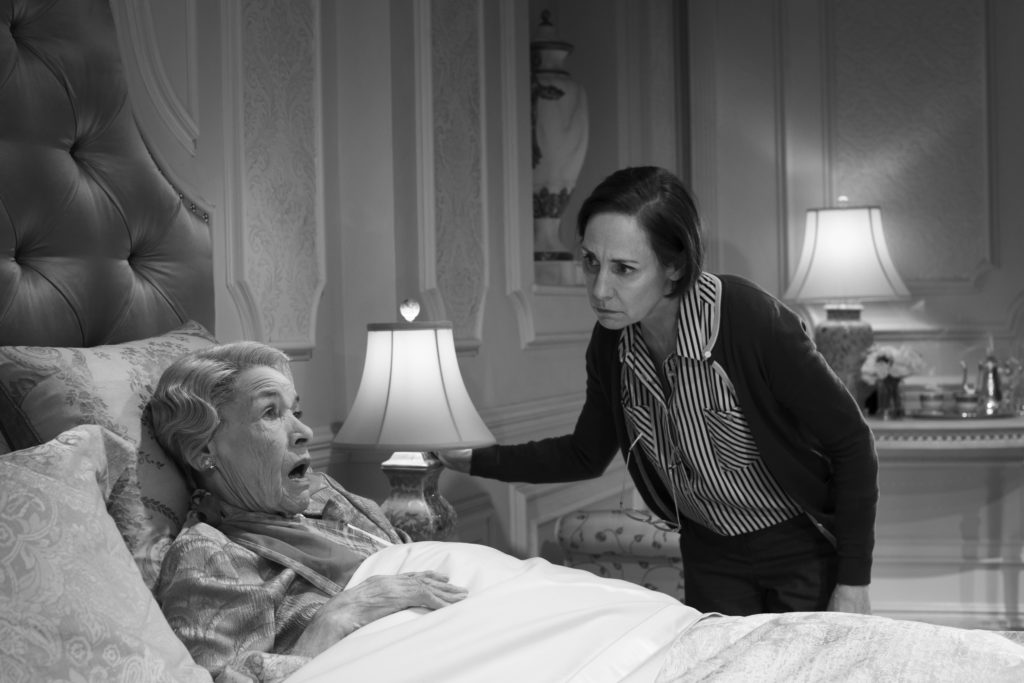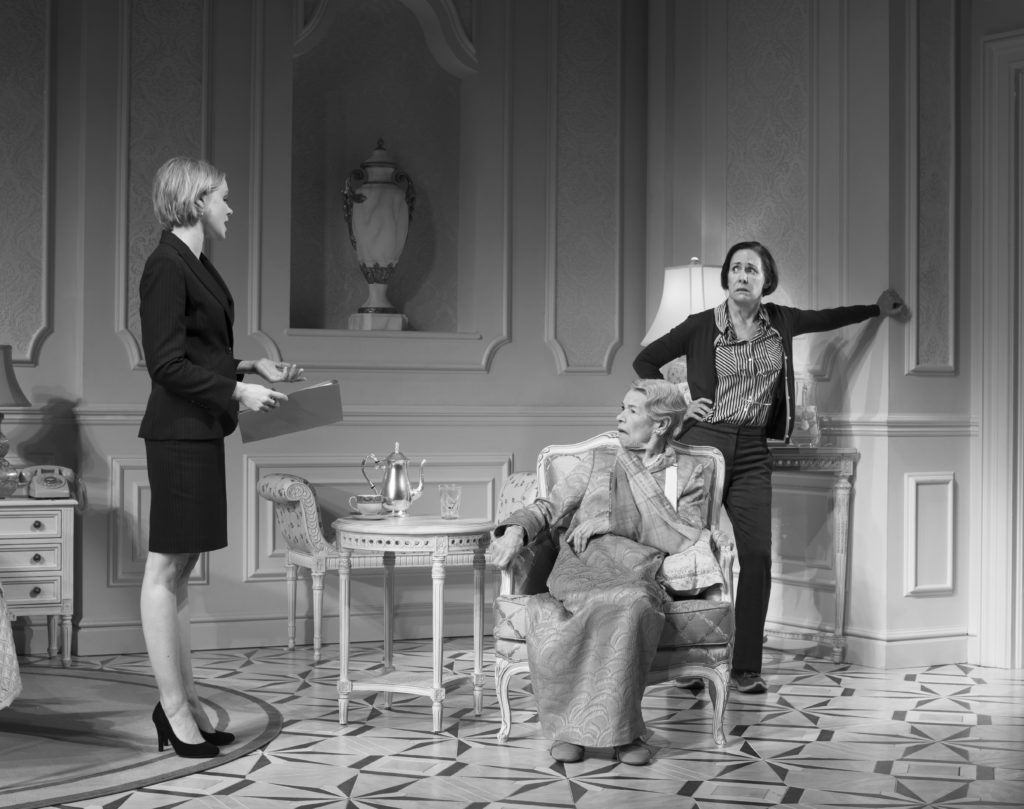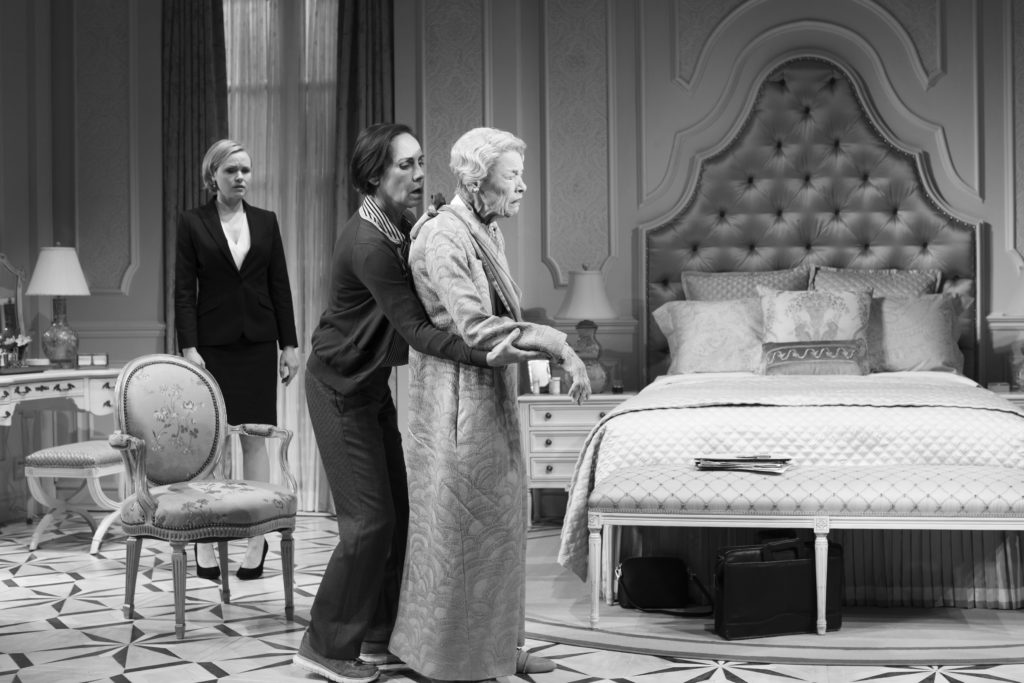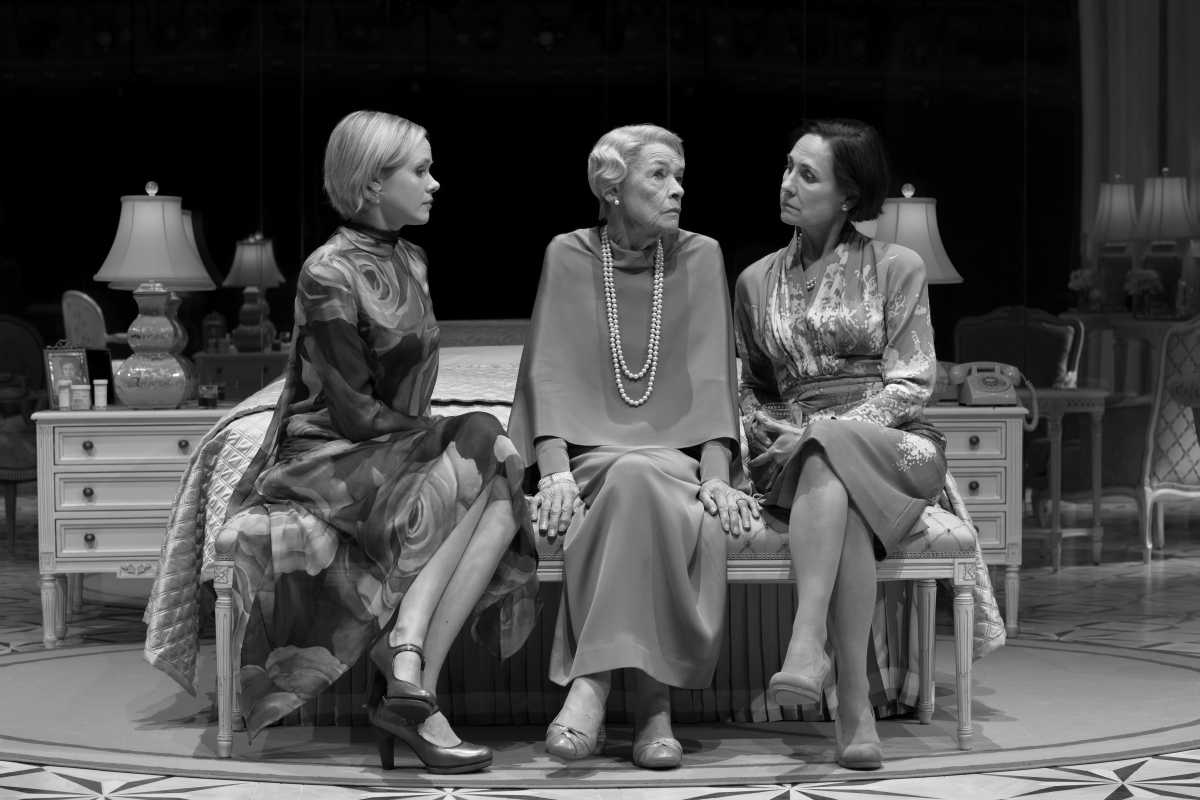BY ELYSE TREVERS
Most of the people at The Golden Theatre were there for one major reason- to see actress Glenda Jackson in her return to the Broadway stage after thirty years. There was a palpable sense of excitement in the audience and no one was disappointed.
Directed by Joe Mantello, the revival of the 1994 Pulitzer-Prize winning Edward Albee’s “Three Tall Women” takes place in two acts and spans an hour and forty-five minutes. Except for a quick costume change between scenes, the performers barely leave the stage.
In Act One, Jackson portrays A, a wealthy elderly woman. She may be 90 or 91 (her exact age prompts a lengthy discussion.) She is tended to by her aide, B, the always wonderful Laurie Metcalf who alternates between being nurturing and sarcastic. While A rambles and remembers but sadly sometimes can’t remember, B listens, prompting the stories and encouraging her flow of memories.
The newcomer is Allison Pill, C, a 20-something attorney who has come to work on A’s financial affairs. Although she listens to A’s stories, she subtly (and not so subtly) mocks her, even correcting her. Pill is a callow youth with a lack of tolerance of the frailties of age.

Act Two begins with a mannequin of A in a comatose state in a bed in the back of the stage. Three women, A, B, and C- all versions of the same lady in different stages of life, view the body. Through their interactions and discussion, we learn about A’s life.
Pill is good as C, the youthful, hopeful, and flirtatious 26-year-old who is anxious to hear about her future. She’s distressed to learn that her future isn’t filled with love and happiness and keeps asking for the “happiest moment.”
Metcalf, easily one of the finest working actresses today is B, a disenchanted, somewhat embittered middle-aged, 52-year-old. She has wonderful delivery and says even more with her expressions. B is so bitter about her husband’s philandering and escapades that she has an affair, along the way becoming estranged from her only son. Despite it all, she claims that she had “happiest time: half of being adult done, the rest ahead of me. Old enough to be a little wise, past being really dumb.”

Finally there’s A, the now 90-something who has become resigned to the end of her life. Yet she anticipates the end with a sense of calm. Noting how she’s finally living in the happiest time, she explains, “When it’s all done. When we stop. When we can stop.”
Jackson is a wonder. Strong, magnificent, forceful and often funny, she doesn’t skip a beat or even stumble over a word. (Besides if she did, it could always appear as if it were part of the show.) She tells her stories in a clear forceful voice, begins to ramble and sometimes breaks down as her memory fails her. The oldest of the three performers at age 82, Jackson seems to have the biggest part in the show. She delivers several lengthy speeches, ones that could easily work as monologues. The audience who came to see her, thrilled at a master at work.
Beautifully written Edward Albee’s “Three Tall Women” features three wonderful actresses giving three excellent performances. For an audience, this is one of the happiest times.


































